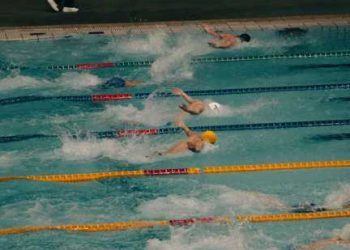Athletic performance is a physically demanding and challenging activity that requires adequate hydration to maintain optimal performance. Proper hydration is crucial for athletes, as it affects their performance, endurance, and recovery. When an athlete is not adequately hydrated, they can experience a drop in their mental and physical performance, leading to a decline in overall athletic ability.
Dehydration can happen when an athlete loses fluids through sweating and breathing, and they do not replace them adequately. The loss of fluids affects the body’s regulatory system, which leads to an increase in heart rate, blood pressure, and body temperature. As a result, this can lead to a decrease in blood flow to the muscles, which, in turn, reduces the delivery of oxygen and crucial nutrients to the cells. This can impact the quality of performance and lead to a higher risk of injury.
One of the primary impacts of dehydration on athletic performance is that it reduces endurance. When athletes are dehydrated, their body’s ability to regulate temperature becomes compromised, impairing their ability to keep up the required activity intensity for prolonged periods. This results in fatigue much earlier, reducing their ability to perform at peak performance levels.
Moreover, being hydrated is vital for recovering from any ‘physical activity or exercise. This is because adequate hydration enhances blood flow to the muscles, removing waste products generated during exercise, and providing essential nutrients for muscle repair and recovery. Without adequate hydration, athletes may not recover as quickly or as completely, leading to a higher risk of injury.
Another important reason why athletes need to maintain proper hydration is that it’s essential for their mental performance. Studies have shown that being dehydrated can impact cognitive function, memory, and attention span. Athletes must remain mentally focused throughout their training, as this plays a critical role in the development of muscle memory, overall technique, and skillset.
The precise amount of fluids required by athletes can depend on various factors like temperature, humidity, duration, and intensity of activity. Some nutritionists recommend the “sweat test” as an effective method to determine the right amount of fluids and electrolytes that an athlete needs. This typically involves weighing the athlete before and after a workout, to understand exactly how much fluid they have lost.
In conclusion, athletes must maintain proper hydration levels if they want to perform at their best, increase their endurance, and reduce their injury risks. It’s important to note that different sports will have unique hydration demands, and that individual athletes also have their specific requirements, so working closely with a nutritionist or a sports medicine professional can ensure that athletes hydrate correctly. Therefore, drinking enough water and replacing lost fluids as quickly as possible after activities is crucial to support optimal athletic performance.













